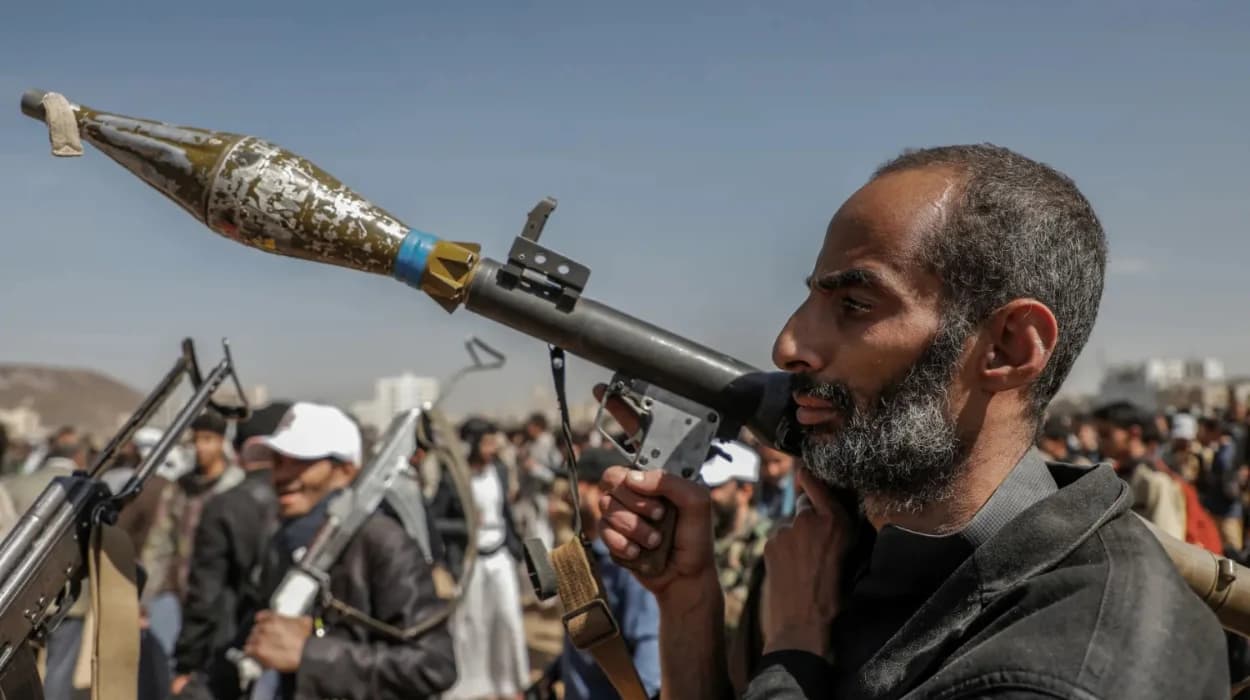The Houthis have claimed responsibility for drone attacks on
Israel, escalating regional tensions amid ongoing conflict. The attacks come as
humanitarian and political crises deepen in the Middle East, with various
international actors responding cautiously.
What Have the Houthis Claimed Regarding Drone Attacks on Israel?
As reported by Jonathan Cook of Consortium News, the
Houthis—a Yemeni armed group—have recently announced that they carried out
drone attacks targeting Israel. This claim marks a significant development
in the regional conflict, highlighting the Houthis’ increasing reach beyond
Yemen’s borders.
Who Are the Houthis and Why Are They Targeting Israel?
The Houthis, formally known as Ansar Allah, are a Shiite-led
rebel group in Yemen engaged in a prolonged conflict with the Yemeni government
backed by a Saudi-led coalition. Their recent claim to attack Israel with
drones represents a statement of solidarity with Palestinians amid escalating
confrontations in Gaza and broader opposition to Israeli policies.
International Observers Reacted to These Claims
Reactions from the international community have been
cautious. While there is condemnation of violence, including the attacks on
humanitarian facilities in Gaza—as mentioned by the World Health Organization
(WHO), which condemned attacks on its staff and warehouse in Deir al Balah—no
immediate military responses to the Houthis’ drone claims have been reported.
The conflict’s complexity draws in multiple nations, each balancing
geopolitical interests and humanitarian concerns.
Broader Context of Conflict and Humanitarian Crisis
The drone attacks come as part of a wider turmoil in the
Middle East. The United Nations Secretary-General António Guterres recently
condemned killings of people seeking food in Gaza, emphasizing deteriorating
humanitarian conditions. Alongside military actions, humanitarian aid
systems face severe challenges, with Western governments accused of obstructing
assistance to Gaza amid alarming levels of malnutrition and casualties.
How Do Media and Public Access News About These Events?
According to Ofcom’s 2025 research on news consumption in
the UK, people increasingly rely on online platforms for news, though
traditional outlets remain trusted sources. This trend shapes how
information about conflicts such as the Middle East crisis is disseminated
globally. BBC News remains one of the most accessed sources, followed by Sky
News and other online providers, reflecting a blend of traditional and digital
consumption.
What Does This Mean for the Future of Regional Stability?
Former British diplomat Alastair Crooke, cited by Consortium
News, provides insight into the volatility in the Middle East, suggesting that
events like these drone attacks signal deeper geopolitical shifts with
unpredictable consequences. The involvement of non-state actors like the
Houthis using technologically advanced means such as drones is changing the
dynamics of warfare and diplomacy.
What Are the Humanitarian Implications Amid the Military Escalation?
The WHO’s reports underscore that attacks on humanitarian
facilities compromise medical operations, putting civilian lives further at
risk. Such developments exacerbate the suffering of local populations
already enduring conflict-related hardships.
How Is News Coverage Evolving in the Digital Era?
As Ofcom notes, online news platforms and social media
dominate among younger audiences, while older generations still prefer
television and print. This shift affects how narratives around conflicts
are shaped and understood worldwide, influencing public opinion and policy.
Detailed Account of Houthis Drone Attacks on Israel and Regional Impact
The Houthis’ announcement of drone strikes on Israel is
unfolding against a backdrop of heightened Middle Eastern tensions and severe
humanitarian crises. These drone attacks, as described by journalists from
Consortium News, signify an extension of the Yemeni conflict’s reach and a
symbolic act of defiance aligning with Palestinian resistance.
The UK-based journalist Jonathan Cook reports that Western
governments have been criticized for obstructing aid efforts into Gaza, where
the humanitarian situation is dire and people are dying daily from malnutrition
and a lack of medical supplies. The World Health Organization has
condemned recent attacks on its facilities in Gaza, emphasizing the impact on
health services due to the ongoing hostilities.
Media consumption patterns reveal that the public accesses
this volatile news landscape through diverse channels, with a marked rise in
online news consumption noted by Ofcom in 2025. Social media platforms,
while popular, are often seen as less trustworthy compared to traditional
media, though younger demographics are increasingly turning to these sources
for their news.
Given these complex interconnections, the drone attacks by
the Houthis are not isolated incidents but rather components of a broader
geopolitical and humanitarian quagmire. Insights from experts like Alastair
Crooke suggest that the Middle East’s unstable equilibrium may further
deteriorate, with non-state actors leveraging new technologies to challenge
established powers.
Finally, the humanitarian fallout is acute. The UN and WHO
reports underscore the urgent need for protection of aid workers and unhindered
access to relief supplies, yet hostile conditions and violent escalations
continue to obstruct these efforts, prolonging civilian suffering.
